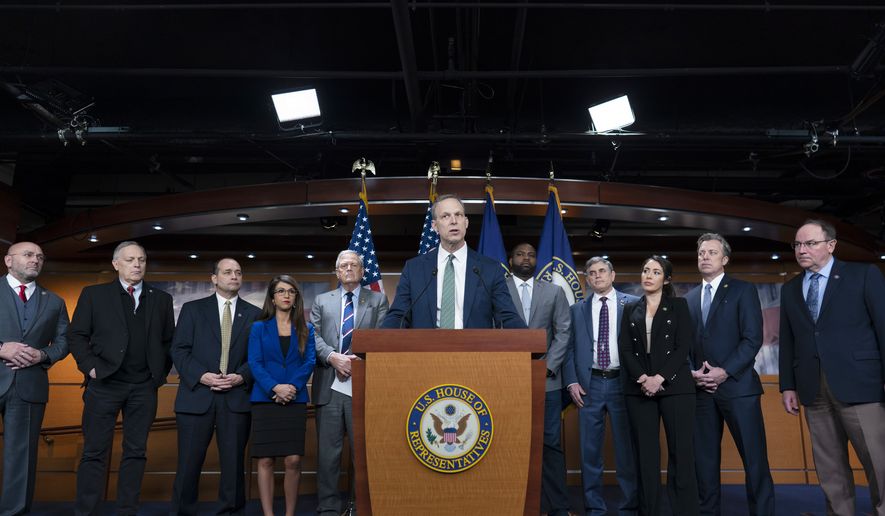The conservative House Freedom Caucus called on President Biden to accept the reality of a divided Congress and begin negotiations on raising the debt ceiling.
Rep. Scott Perry, Pennsylvania Republican and Freedom Caucus chairman, said the group has presented its list of demands in exchange for raising the cap on how much the federal government can go into debt.
“We don’t have to wait till this is a crisis. You see members of the House and Senate working together,” Mr. Perry said. “We’re ready to deal with it, tackle it right now. If they want to put a bill up next week, we’re all ready to go.”
Mr. Biden met with House Speaker Kevin McCarthy last month to discuss the debt limit and other issues on the White House’s agenda this year. Although cordial, the meeting did not lead to official negotiations between the speaker and the administration.
Instead, the White House has said it will not engage in such talks because both Republican and Democratic administrations created the looming debt crisis. Mr. Biden has also sought to paint the Freedom Caucus as his foil in the debt-limit stand-off.
“They’re not the majority, but they will be, I think, in [the] House, successful in terms of what they’re going to do,” Mr. Biden said. “What we’re going to do is make sure that they have to make their case.”
Republicans only have narrow control of the House and cannot lose more than five GOP lawmakers on any vote before having to rely on Democrats. The tenuous position has given the 40-member Freedom Caucus significant influence over Mr. McCarthy and the Republican agenda.
The group is the only ideological faction within the House GOP that has made public its set of demands in exchange for raising the debt limit. Those include $131 billion in immediate spending cuts and the cancellation of Mr. Biden’s student-loan forgiveness program.
Freedom Caucus leaders are also pushing for the clawing back of $90.5 billion in unspent coronavirus relief. They also want to rescind the $80 billion in new IRS money and more than $350 billion in climate-change subsidies authorized by the Inflation Reduction Act.
• Haris Alic can be reached at halic@washingtontimes.com.




Please read our comment policy before commenting.